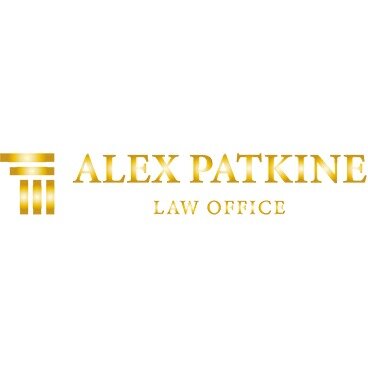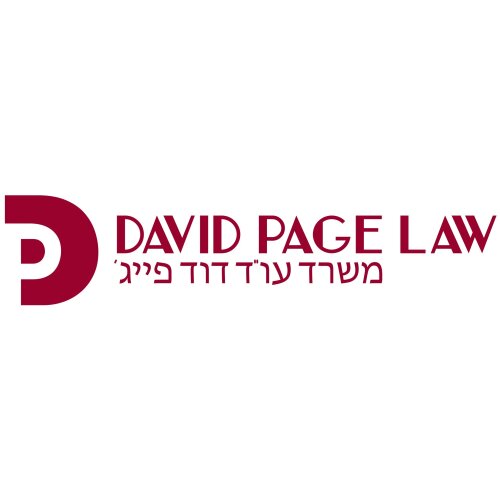Best Licensing Lawyers in Israel
Share your needs with us, get contacted by law firms.
Free. Takes 2 min.
Or refine your search by selecting a city:
List of the best lawyers in Israel
About Licensing Law in Israel
Licensing law in Israel governs the granting and regulation of licenses for a variety of activities and industries, ranging from professional and business licenses to environmental and broadcasting licenses. This legal field ensures that individuals and entities operating in specific sectors comply with the necessary standards and regulations established by the state. Licensing law aims to protect public welfare, maintain industry standards, and promote fair competition in the market.
Why You May Need a Lawyer
Engaging in activities that require licensing in Israel can be complex due to the stringent regulations and procedures involved. Here are some common situations where you may need legal assistance:
- Application Process: Navigating the process of obtaining a new license or renewing an existing one can be complicated and time-consuming.
- Compliance Issues: Ensuring that you comply with all relevant laws and regulations to avoid penalties or the revocation of a license.
- Disputes: Handling disputes related to licensing, such as disagreements with governmental bodies or third parties.
- Appeals: Filing an appeal or challenge if a license application is denied or revoked.
- Intellectual Property Licensing: Managing and negotiating licenses for intellectual property, such as software or trademarks.
Local Laws Overview
The key aspects of local licensing laws in Israel that are particularly relevant include:
- Regulatory Framework: Licensing is overseen by different governmental bodies, depending on the type of license and industry.
- Application Requirements: Specific documentation, fees, and compliance with local regulations are necessary to obtain most licenses.
- Validity and Renewal: Licenses are typically valid for a defined period and require timely renewal to remain in effect.
- Enforcement and Penalties: Non-compliance can result in substantial fines, suspension, or revocation of the license.
Frequently Asked Questions
What types of licenses are commonly required in Israel?
Common licenses include professional licenses (e.g., lawyers, doctors), business licenses, construction permits, and environmental licenses.
How long does it take to obtain a license in Israel?
The duration varies depending on the type of license and regulatory body. It can take anywhere from a few weeks to several months.
What should I do if my license application is denied?
Consult a licensing lawyer to understand the grounds for denial and explore options for appeal or re-application.
Can a foreigner apply for a business license in Israel?
Yes, foreigners can apply for a business license, but they may need additional permits or meet specific criteria.
What are the consequences of operating without a required license?
Operating without the necessary license can lead to legal action, fines, or the closure of business activities.
Is it possible to transfer a license to another party?
This depends on the type of license and relevant regulations. Some licenses may be transferred with approval from the issuing authority.
What is the role of the Ministry of Economy in licensing?
The Ministry of Economy oversees and regulates industries to ensure compliance with economic, safety, and labor laws, often handling various industry-specific licenses.
Do licensing requirements change frequently in Israel?
Yes, regulations can change frequently as new laws are enacted, so it's important to stay informed about current requirements.
Can licensing decisions be subject to judicial review?
Yes, licensing decisions can be appealed in court, particularly if there is a belief that the decision was unfair or unlawful.
What is the process for renewing a license?
The renewal process typically involves submitting an application along with updated documentation and paying a renewal fee before the current license expires.
Additional Resources
If you are seeking further information or assistance regarding licensing in Israel, consider reaching out to the following resources:
- Ministry of Economy - Responsible for various industry licenses and regulations.
- Israel Bar Association - Offers resources and guidance for legal professionals.
- Business and Licensing Help Centers - Provides advisory services for entrepreneurs and businesses.
Next Steps
If you require legal assistance with licensing matters, consider taking the following steps:
- Research: Gather all relevant information and documents related to your licensing issue.
- Consultation: Schedule a consultation with a lawyer specializing in licensing law for personalized advice.
- Legal Strategy: Work with your lawyer to develop a legal strategy tailored to your specific situation.
- Monitor Progress: Actively follow up on your case and ensure all necessary actions are taken promptly.
Lawzana helps you find the best lawyers and law firms in Israel through a curated and pre-screened list of qualified legal professionals. Our platform offers rankings and detailed profiles of attorneys and law firms, allowing you to compare based on practice areas, including Licensing, experience, and client feedback.
Each profile includes a description of the firm's areas of practice, client reviews, team members and partners, year of establishment, spoken languages, office locations, contact information, social media presence, and any published articles or resources. Most firms on our platform speak English and are experienced in both local and international legal matters.
Get a quote from top-rated law firms in Israel — quickly, securely, and without unnecessary hassle.
Disclaimer:
The information provided on this page is for general informational purposes only and does not constitute legal advice. While we strive to ensure the accuracy and relevance of the content, legal information may change over time, and interpretations of the law can vary. You should always consult with a qualified legal professional for advice specific to your situation.
We disclaim all liability for actions taken or not taken based on the content of this page. If you believe any information is incorrect or outdated, please contact us, and we will review and update it where appropriate.
Browse licensing law firms by city in Israel
Refine your search by selecting a city.















